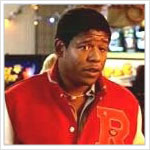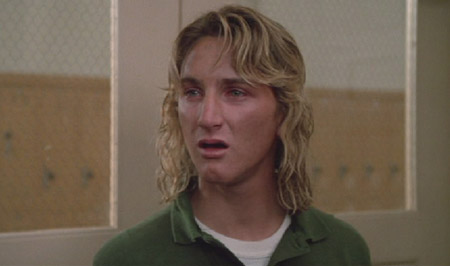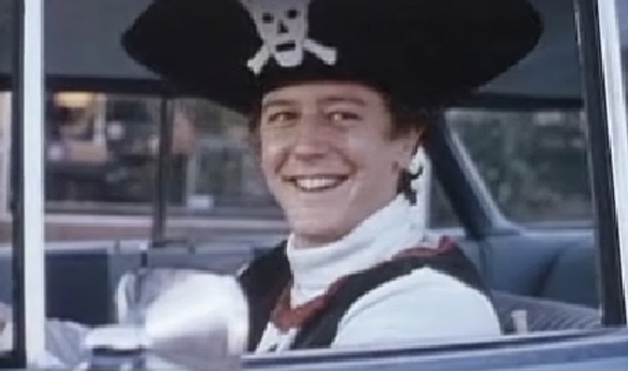When I was working on my undergrad degree a friend told me that his parents had always said to him “You can be a butcher, baker or candlestick maker as long as you’re the BEST butcher baker or candlestick maker you can be”. At the time I thought it was heady, open-minded, inspirational stuff. In the years since then, I’ve come to view it as idealistic, vague nonsense.
With the Olympics occurring in Vancouver, Canada we’re being given the chance to see the best in the world of a variety of activities such as hockey, skiing, or skating. When the Canadian Women’s Hockey team’s 21 members hit the ice, are they REALLY the absolute best 21 women hockey players in the country? Is there any chance that someone who would have made the team got injured or had a non-hockey commitment and couldn’t be a part of it? Are all 21 members definitely and absolutely better than the first alternate player (do we have that much faith in the coach’s ability to appraise their ability?). Might one of the 21 members be a worse player than the first alternative, but just fit better as a teammate for the other 20 women?
Similarly, when someone doesn’t get a job they applied for (and another candidate is hired), can it be absolutely said that the person who was hired was “better”? Does ANYONE have that much faith in the hiring process?
I was at a bar with friends recently and one of the guys ordered a double shot of their most expensive scotch. When I started talking scotch to him, it became quite apparent that he didn’t know a thing about single-malts (and probably would have been just as happy with a double shot of Johnnie Walker Red Label). Heck, the guy chased it with a bottle of Corona! With a slice of lime!!! When I asked him why he’d bought the most expensive scotch, his only justifications was “it was the most expensive, so that makes it the best!” For non-scotch drinkers, many of the more expensive scotches have extreme tastes (like smokey, peaty or iodinie). It is certainly NOT the case that everyone will find these tastier than the cheaper options.
So, given that the meaning of “best” is nebulous, is the pursuit of some personal definition of it still worthwhile? I’d still say no.
Do I want people to be proficient at their chosen occupation? You bet your ass I do! I don’t want to get sick from eating bad meat or rotten bread (or, I guess, buy defective candlesticks?). Do I need the BEST meat, bread or candlesticks in the world? Naw, not really. In the book review of Better I did in October, I felt one of the weakness was that the author didn’t address the cost of the continual improvement he advocated.
Are there times, say with an Einstein or a Shakespeare, where the world benefits from a genius who focuses themselves on a tight domain of human activity and changes the course of history? Of course! Is it worthwhile for the person themselves? That I’m not so sure about. In an amazing 1986 talk by Richard Hamming he says that doing Nobel-Prize work is better than “wine, women and song” put together. He also admits to neglecting his wife while in pursuit of this work. Is the compromise worthwhile? Are his accomplishments REALLY better than wine, women and song, or is that what he has to tell himself to justify what he’s sacrificed?
Jumping back to the butcher, say I’m setting out to be the best butcher I can be. Obviously I’d learnt the practical skills of running a butcher shop (inspecting meat, cutting to specification, running a business, food safety, etc, etc, etc). Once I’m a competent butcher, I need to develop an obsessive interest in butchering to continue getting “better” (in pursuit of the elusive “best that I can be”). When my wife wants to do an eco-tour of Costa Rica for our holiday, I’ll have to over-rule her and instead take her to Hy?go Prefecture, Japan to learn about Kobe Beef. If my friends want to go out for beers (and to buy the most expensive scotches available), I’ll have to decline as I study up on identification of parasites in pork. Rather than watch my daughter’s dance recital, I’ll be taking classes on exotic marinades for gamefowl.
Are these compromises really desirable in pursuit of becoming the best? And can someone possibly be considered the best of something if they put family and friends (or other interest) ahead of the pursuit of their field of excellence?
As a computer scientist, I’m inherently a 2nd rate mathematician and scientist (we’re a lazy mixture of both). I’m not a particularly good computer scientist, so it’s probably generous to consider me third rate at either. I could, with a focus of attention, be a dramatically better writer, blogger, teacher, researcher, friend, son, brother, boyfriend, employee, entrepreneur, investor or programmer. If I tried to be massively better in one of these areas, the others would all suffer.
Instead, I settle on doing an ok job in each.
Is there something you try to be the best (or your best) at? What are some of the costs of that pursuit and do you ever question the value?





